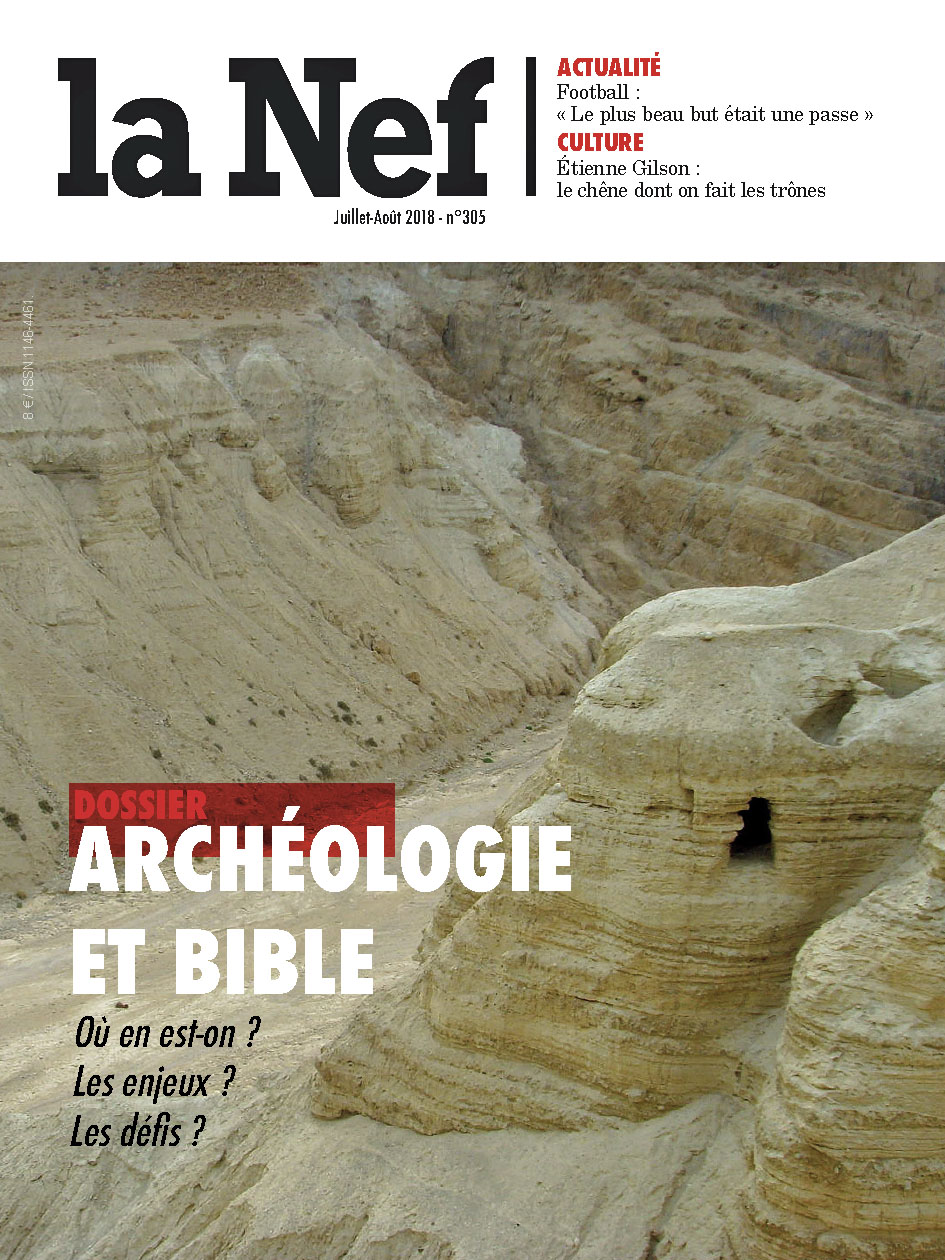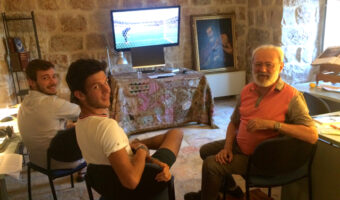At the invitation of the director of the monthly magazine La Nef, Olivier Robert (E.N.S., agrégé d’histoire), project assistant, and Olivier-Thomas Venard, in keeping with the spirit of transmission to the general public that is so dear to the human sciences, have invited their readers to reflect on the current relationship between archaeology and biblical studies.
Archaeology may be able to confirm or refute this or that point in the biblical texts, but that is not its main contribution. It makes it possible to reconstruct the geographical, social and cultural environment of the inspired authors on a local (the small kingdom of Judah), regional (the Levant as a whole) and international (the whole of the biblical Middle East, including Egypt and Assyria) scale.
On the other hand, the reduction of the great history of “all Israel” to the proportions of modest patriarchal legends or epics magnifying more localised acts of war – carried out by historical critics supported by the results of recent archaeology – does not ruin faith for all that. For those who believe that God revealed himself fully in the few years of the life of a young first-century Jew, it confirms a constant of revelation: it is in smallness that the God of Abraham, Isaiah and Jacob unfolds his greatness.
The question of the relationship between Scripture, history and archaeology arises in very different ways depending on the books and periods of the Bible:
- For some books, which present archetypal events, the question is really “myth and history” (cf. the article on the Flood p. 22-23).
- For some others, which relate historical events centuries later, it’s more a question of “epic and history” (cf. the article on the Exodus p. 24-25).
- For some, whose documents are almost contemporary with the events, on the scale of universal history, and many of whose details are confirmed by archaeology, it is more a case of “popular memory and history” (cf. the article on the life of Jesus p. 26-29).


